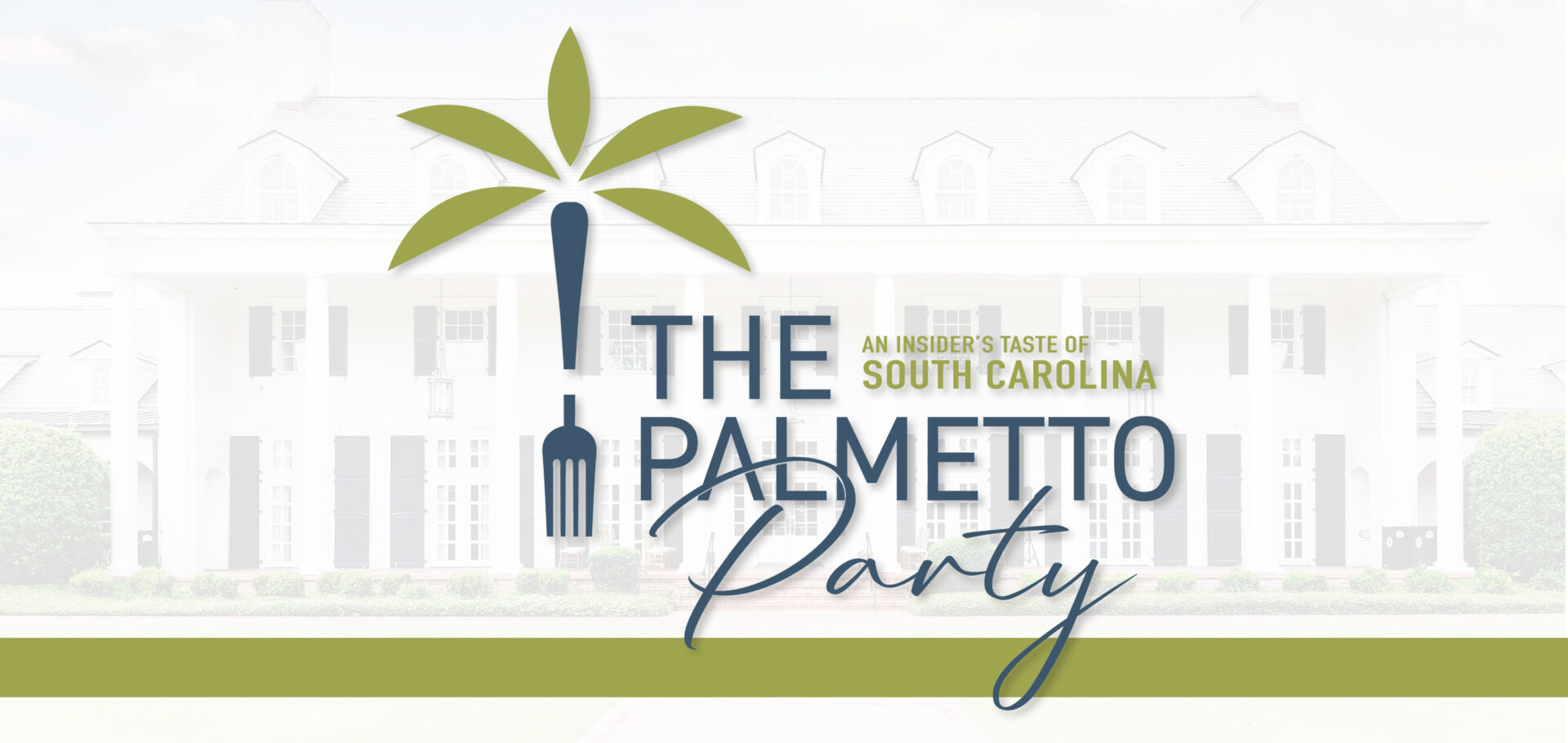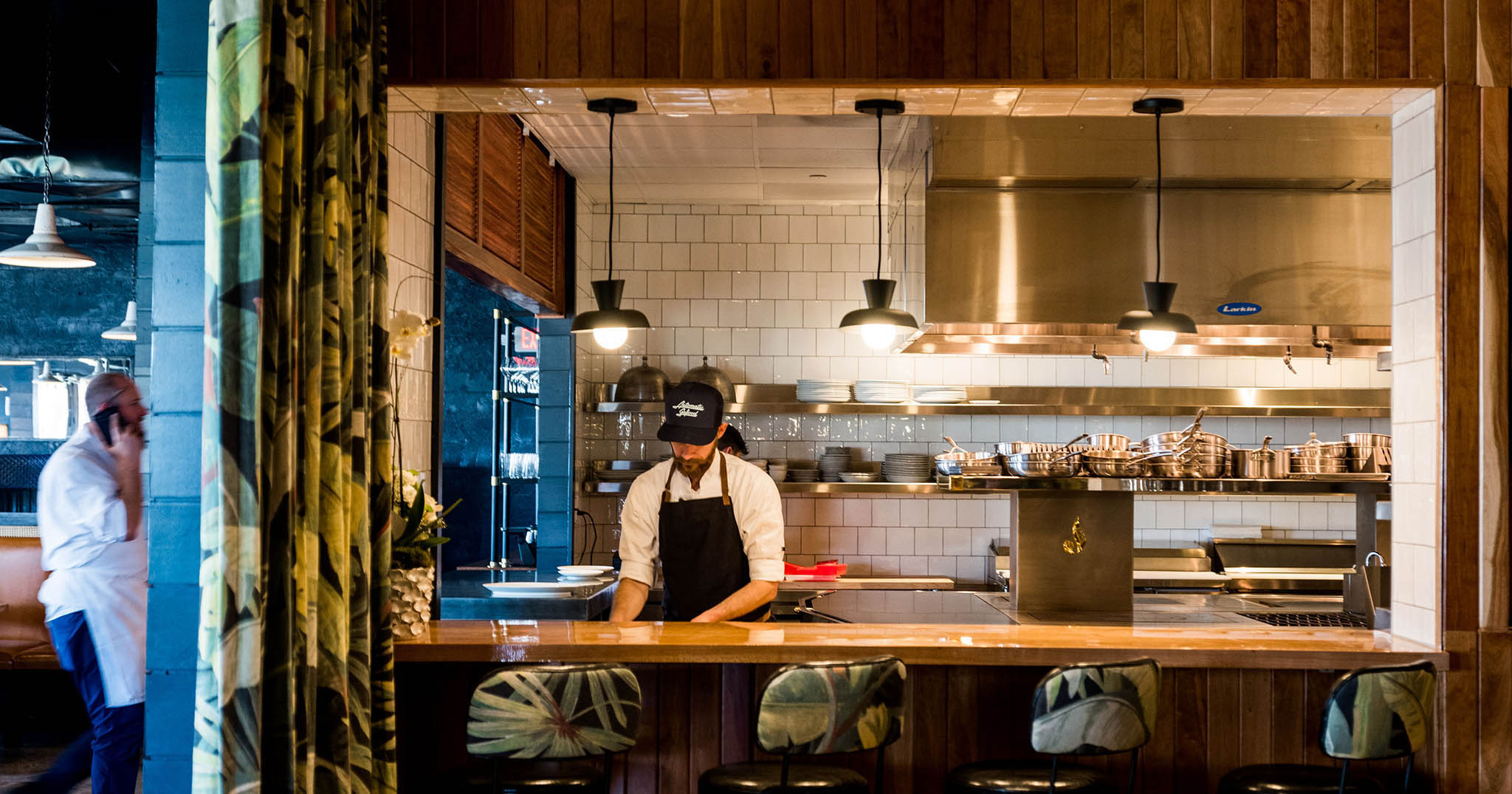Above almost anyone else, chefs are used to making adjustments on the fly. Soup turned out too salty? Throw in a potato, some rice or a squeeze of lemon. A regular customer orders the ribeye right before you had a chance to tell the servers that it’s been 86’d? Visit the table and offer a hanger steak telling him you were saving it for yourself because it’s ”the butcher’s cut.” Dishwasher called out sick? Roll up your sleeves and get to scrubbing those pots and pans.
But when all the rules of dining changed suddenly in March, chefs and restaurateurs found themselves forced to pivot in ways they never could have comprehended prior to the pandemic. Relying on their culinary skills in the kitchen and business acumen, restaurants have made the switch to carryout and delivery models to continue to serve their customers and hopefully keep their struggling operations afloat.
Across the South, notable chefs have taken different approaches to the new realities of remote eating, always with an eye on how to best serve both the safety and well-being of their staffs as well as the needs of their customers. The financial results have varied, but some chefs have thrived under the pressure. “The restaurants that have really embraced carryout and are having a good time of it are seeing success, but others have struggled,” notes Bruce Moffett, chef/owner of the Charlotte-based Moffett Restaurant Group, a collection of four restaurants that showcase the chef’s commitment to innovative, seasonal-driven cuisine. He is now serving variations of his standard menus from his kitchens to keep his hungry fans happy, while at the same time reacting to the constantly moving market conditions. “We’re changing our business model on a daily basis,” he explains. “There’s so much stuff to think about. We’re planning for the future, but it’s really just day-to-day!”

In Oxford, MS, Chef Vishwesh Bhatt is the reigning winner of the James Beard Award for Best Chef-South and the Executive Chef at Snackbar, part of the City Grocery Restaurant Group run by another Beard winner, John Currence. The two chefs put their heads together as soon as they saw the effects that COVID-19 was having on their business in mid-March. Bhatt recalls, “We weren’t getting clear directions from anybody, so we made the decision to shut down all our dining rooms. Then we said, ‘Now what?’” The restaurant group’s flagship property is City Grocery, referred to as “the living room of Oxford.” Unfortunately, the same factors that give the restaurant its charm — the cozy upstairs bars and tables in the main dining room placed close enough to share food and conversation with your neighbors — were exactly the sort of safety concerns that Bhatt and Currence were worried about.
When they decided to switch to an off-campus dining model, the chefs focused on practical considerations. “We didn’t have a big parking lot at City Grocery,” explains Bhatt, “but Snack Bar and Big Bad Breakfast share a building, so we had lots more room and a bigger prep area. We decided to operate out of there and consolidate menus from all three restaurants.” Now Oxonians can order a morning meal from Big Bad Breakfast from 8:00 until 1:00, after which the kitchen switches to a menu focused on Snack Bar and City Grocery dishes.

In Birmingham, Adam Evans is serving his brand of food that you might not think was the most appropriate for takeout — fresh seafood. The chef was recently named a finalist for the James Beard Rising Star Chef award for 2020. (He jokes, “I guess the judges will have to order takeout from all of us to make up their minds!”) At his popular Automatic Seafood and Oysters, Evans didn’t have a lot of experience with carryout or delivery business, noting, “We maybe had a dozen to-go orders in our first year of business.”
Still, he quickly made the decision to close his dining room almost as soon as he heard about the coming crisis. “We closed before anybody told us to,” he recalls. “We just felt it was unsafe, and we heard some news from UAB (University of Alabama-Birmingham) that concerned us. We took the advice of the professionals and consulted with friends in other cities. I didn’t want to create an unsafe situation here. That would have been the worst thing we could do.”
In consultation with his wife, Evans made the decision to switch to carryout almost immediately. “I’ve got a lot of food here, and I hate to throw anything away,” he explains. “We have a large staff, and I unfortunately had to furlough everybody except for eight employees.Then we started to test out our menu items by cooking them and putting them in a box for an hour and a half to see how they would keep as carryout. The first challenge was our oyster bar, but we’re still providing bags of Murder Point oysters and selling them baked. We make ceviche and keep it iced down for people to carry out, and that’s worked out well. It turns out that people want a bit of this kind of food right now because they’re less likely to cook seafood at home, so we’ve been able to stick with what we do.”
Evans made the commitment early on in the life of his restaurant to buying whole fish and figuring out ways to utilize more than just the fillets, like serving fish collars, cheeks and even chips made from the eyeballs. “It’s a sustainability thing, plus it’s a great deal for me!” Another benefit to his seafood-centric menu has been that product availability has remained constant. Evans explains, “The supply chain hasn’t been affected at all. Fish are the only thing not feeling the pandemic; they’re actually thriving as they’ve experienced less pressure from fishermen. I talked to Bill Briand (the chef at Fishers in Orange Beach, AL), and he told me he’s never seen so many fish coming into the ports.”

Maricela Vega is a talented young chef leading the kitchen at Atlanta’s 8ARM where she has earned acclaim for her unique take on modern Mesoamerican cuisine, and she already had some experience with the concept of cooking portable food. “I started out cooking with somewhat of a carryout model selling tamales at local community farmer’s markets and setting up tables outside of Latinx dance parties to sell agua frescas and tamales. So, I’m no stranger to hard work.”

However it didn’t take long for the 8ARM team to realize that it would be difficult to operate a takeout operation out of the restaurant’s small space. She recalls, “It was already close quarters in the kitchen, so it’s just not realistic right now. When we saw that sales were dropping, I was communicating with friends in NYC and Hong Kong and hearing what was happening there. We were trying not to panic and slowly transition to to-go, so we furloughed everyone to assess the next steps.”
She brought back a few of her workers to help cook takeout orders, but that experiment was short-lived: “To-go was very slow. We were working 13-hour days to bring in less than $500; it was exhausting and not worth it. So we decided to go with another plan., even though nobody knew what was going to happen.”
Vega continues, “I had pitched the idea of a CSA beginning in the summer to help support our farmers, some of whom had already started planting crops for us. We decided to partner with an organization called Freedom University that provides free college-level classes and college application and scholarship assistance to undocumented Atlanta residents. We worked with this group to help get fresh, locally-sourced food in the form of CSA baskets to 125 people a week.” Other organizations were already providing dry goods to some of these clients, but they needed produce. That’s where Vega and her team came in.
Vega helps to source the produce and prepares add-ons with her staff, a menu that includes her famous tamales, hot sauces, ramp pesto, mole and soups. “We only make money from the add-ons,” explains the chef. “What we make from selling CSA boxes to the public we use to prepare the free baskets that we give away so that families can get 18 eggs, 3 bundles of greens and mixed vegetables, bread, fruit, herbs, potatoes and lettuces, hopefully enough to feed them for the week. We’re proud to be able to provide relief while at the same time taking a stand for a group of people who were already facing plenty of adversity before they ever arrived here and before this crisis started.”
Even better, 8ARM’s CSA program has a long reach. “It’s a whole tributary system of support,” says Vega, proudly. “We’re supporting our farmers as well as local immigrants as we fulfill 125 people with groceries each week. We hope we can continue to contribute our part of the work, but we’re literally watching the numbers day-by-day. I don’t think a lot of people understand the pressure that restaurants are under right now.”



In Oxford, Bhatt has also come up with a way to help out his community and employ more of his formerly-furloughed staff. “We have a catering kitchen, so we were able to bring some people back to cook for John (Currence’s) charity, Move on Up, Mississippi. Bhatt explains, “The charity is focused on children, so we give first priority for families with children. We brought back 3-4 people to work in our production kitchen along with rotating managers and regular staff through there, so it’s nice to be able to find ways to keep people fed and working.” Bhatt has discovered another benefit to the new consolidated kitchen operations: “It allows guys who are working at our different restaurants that don’t normally get to spend time together the chance to get to know each other better. I’ve been working with John for 25 years, but it’s been great to get to spend some time with the younger cooks who I didn’t know as well.”
Currence is also keeping busy. Bhatt shares, “He’s been working the phones to stay on top of the changing regulations and sourcing product for our restaurants and the charity. He’s helping out wherever he’s needed: cooking on the line and bagging up orders.” The restaurant group also offers hours for employees willing to help out with a little maintenance work in their operations. Bhatt jokes, “I can change a lightbulb, but that’s about it. We also have a woman who’s really focused on our little backyard garden, and it should look fantastic later this summer!”
In addition to helping out with cash flow issues during these difficult times, staying open for carryout gives chefs the chance to continue to interact with their customers, even while serving unorthodox menus. Moffett notes, “In these times, people want comfort food, so we’ve been focusing on good food cost items for us like chicken and pasta, no high-end fish dishes or anything like that. Our chefs had fun coming up with a Cinco de Mayo fiesta kit, and people were obsessed with it. Customers are also going bonkers for our hand-squeezed margarita kits and to-go cocktails in quart cups. We sold 60 of those the first night we offered them!”

Bhatt is grateful to the people of Oxford for their support, saying “We’ve been really fortunate that the town folks have been so good for us, coming here regularly and putting a lot of money into our Employee Relief Fund. We understand that many people don’t have a lot of money to spend eating out, but the stuff we can do affordably is still, at the core, our food.”
The future remains murky, but Bhatt is constantly planning. “We’re not close to letting people into our dining rooms yet. I fear that political leaders are giving people false hope, and I hope everyone is careful and mindful. We’re going to have to rely on carryout for the short term. I have the suspicion that when everybody feels safe, maybe September/October, you might see that rush back to eat out just because you’ve missed it. How long it will take for everybody to feel comfortable doing that, it’s anybody’s guess. We’re looking for answers from folks that don’t have answers, so sometimes you just have to create your own answers and try to be safe. In the end, it’s only lunch, and we’re just cooking food. We simply count our blessings and hope that we get past this and that it makes us a better community.”
Evans remains committed to his new model, even with the benefit of hindsight. He admits, “It would have been easier to just close and stay shut. Nobody opened their restaurant to get into the curbside delivery game. It makes us reflect on why we do this in the first place, and it’s to create an experience for people to come and experience a place and also to provide food, drink and hospitality. That’s the experience we’re providing, except you can’t come in here right now. So we have to do the best we can and try to make it translate through a box. We’re not giving up, and we’ll keep trying to make something positive out of something like this. It’s not realistic to expect every day to be a win.”
Moffett concurs about the future of his carryout business: “I think it’s definitely something that is here to stay. When do you think we’ll be able to earn money again? It’s going to be a while. I think we’ll tread water for 6-8 months before there’s any potential to earn a decent living again. It’s kinda sad. You can’t maintain restaurants if you can’t roll with the punches. You have to be a little bit scrappy!”
Indeed, for at least the short term, the best that many restaurants can hope for is to #CarryOutandCarryOn.
share
trending content
-
Chefs Heading To The Palmetto Party
by TLP's Partners -
A First Look at Fancypants | Listen
by Erin Byers Murray -
How to Build the Perfect Cheese Board | Video
by Maggie Ward -
5 Things to Do in Bath County, Virginia
by TLP's Partners -
Bearing Fruit at Big Apple Inn
by Erin Byers Murray
More From Dining Out
-
9 Noteworthy West Virginia Restaurants | Listen
-
9 Noteworthy Texas Restaurants | Listen
-
9 Noteworthy Florida Restaurants | Listen
-
The Lao’d-est Bar in Austin | Listen
-
9 Noteworthy North Carolina Restaurants | Listen





